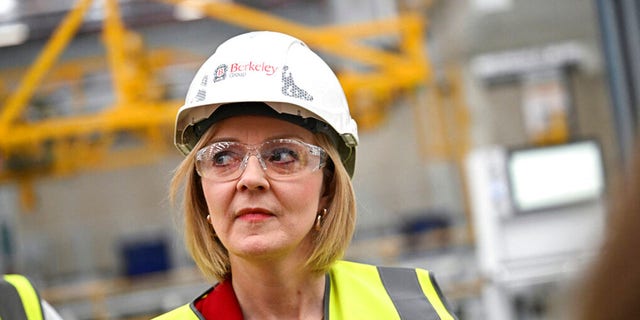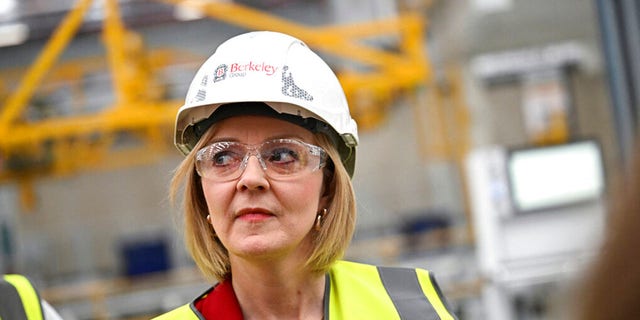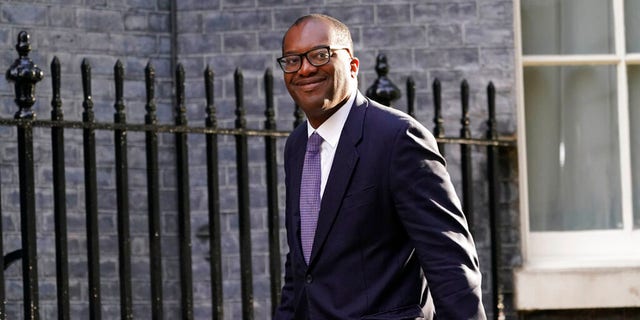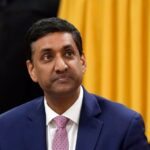
New U.K. Prime Minister Liz Truss has seen a calamitous start to her tenure in 10 Downing Street, as a newly announced raft of policies triggered economic turmoil — and sent her Conservative Party’s poll numbers into freefall.
Truss won the Tory leadership contest last month, replacing the resigning Boris Johnson as both party leader and prime minister. She stepped into the role just days before the death of Queen Elizabeth II and as Brits across the country feared significant energy price hikes in part due to war in Ukraine.
Last week, Chancellor of the Exchequer Kwasi Kwarteng announced a mini-budget that included moves to cut rising energy bills — but which also controversially included deep tax cuts accompanied by an increase in borrowing. Truss said that the dramatic moves were necessary to protect Brits from soaring energy costs.
“People across the United Kingdom will have heard their energy bills could spiral as high as £6,000 and beyond. Families and businesses were set to be squeezed further by tax rises,” she said in The Sun on Saturday. “I know how hard it is and how worried people have been, so we had to act.”
BRITAIN’S PRIME MINISTER LIZ TRUSS: WHAT YOU NEED TO KNOW

British Prime Minister Liz Truss visits Berkeley Modular, in Northfleet, Kent, Britain, Friday, Sept. 23, 2022. ((Dylan Martinez/Pool Photo via AP))
“If we had not stepped up, the cost would have been unthinkable and unforgivable,” she said.
But with the country facing high inflation of 10%, and exacerbated by the government’s refusal to release an accompanying budgetary analysis by Britain’s independent watchdog, the announcement spooked the markets, causing the pound to plummet to a record low against the dollar. That immediately led to fears of more inflation, as well as risks to people’s mortgages — where many Brits are on two-year fixed rate mortgages.
The pound’s nosedive forced the Bank of England to announce a $70 billion emergency move to buy bonds to stabilize the pound, which so far appears to have stabilized the embattled currency and reinvigorated its value.
The storm has opened up a new political weak spot for the Tories which the left-wing Labour Party have used to attack what has been traditionally one of the Tories’ strongest issues — stewardship of the economy. Leader Keir Starmer, a centrist who has brought the party to the middle after the radical left-wing leadership of predecessor Jeremy Corbyn, tore into the government this week over the issue.
UK PRIME MINISTER ELECTION SEES LIZ TRUSS VICTORY OVER RIVAL RISHI SUNAK
“The government has lost control of the British economy — and for what? They’ve crashed the pound — and for what? Higher interest rates. Higher inflation. Higher borrowing. And for what? Not for you. Not for working people. For tax cuts for the richest 1% in our society,” he said in a conference speech. “Don’t forget. Don’t forgive.”
The impact on Truss’ political fortunes were compounded by two polls showing that support was nosediving, with one YouGov poll finding that Labour now hold a massive 33 point lead over the Tories. If accurate, the poll would signal the sort of electoral drubbing last seen in 1997, when Tony Blair’s Labour Party ousted the Tories in a landslide, and exiled them from office until David Cameron entered Number 10 in 2010.

Britain’s Chancellor of the Exchequer Kwasi Kwarteng arrives in Downing Street in London, on Sept. 7, 2022 for the first cabinet meeting since Liz Truss was installed as British Prime Minister a day earlier. ((AP Photo/Alberto Pezzali, File))
Meanwhile, Truss is reportedly facing grumblings with her own Cabinet over plans to increase legal immigration into the country, despite prior promises from the Tories to decrease overall levels of immigration. Some analysts are warning that Truss risks losing the support former PM Johnson found in traditionally Labour strongholds in the North and elsewhere by embracing a more populist approach centered around Brexit and “leveling up” areas outside of London.
“These policies appear destined to confirm many people’s worst instincts about the Conservative Party, cementing an image of the governing party as being on the side of a very small, rich, London-centric elite of bankers and High Net Worths who never really cared about levelling-up the rest of the country and never really saw a problem with being heavily dependent on London, the City, and the south-east,” British pollster and academic Matthew Goodwin wrote in an analysis this week.
On Saturday, the situation worsened for Truss as rail unions ground trains to a halt with coordinated strikes as they called for wage increases to rise with inflation. Meanwhile, even with government action cushioning the blow, energy bills still rose on Saturday. The government announced that a typical household will pay around £2,500 a year, up from £1,971 last year. The government said that without the energy caps it put in place, it would be £3,500 a year.
Truss, meanwhile, is standing by her government’s moves, telling Brits that the status quo was not working and “I am going to do things differently.”
CLICK HERE TO GET THE FOX NEWS APP
“It involves difficult decisions and does involve disruption in the short term,” Truss said in The Sun. “Not everyone will like what we are doing, but I want to reassure the public that the Government has a clear plan that I believe is right for the country.”
The government’s insistence on pushing forward has reported infuriated even Truss’ allies. The Times reported that one senior government figure was rebuffed when suggesting a change of course. That figure told the outlet that it was like “talking to crack addicts.”
Meanwhile, it was reported that Labour officials, delighted at their political rivals’ misfortune, were referring to the crisis as “the Trussterf—.”
The Associated Press contributed to this report.






